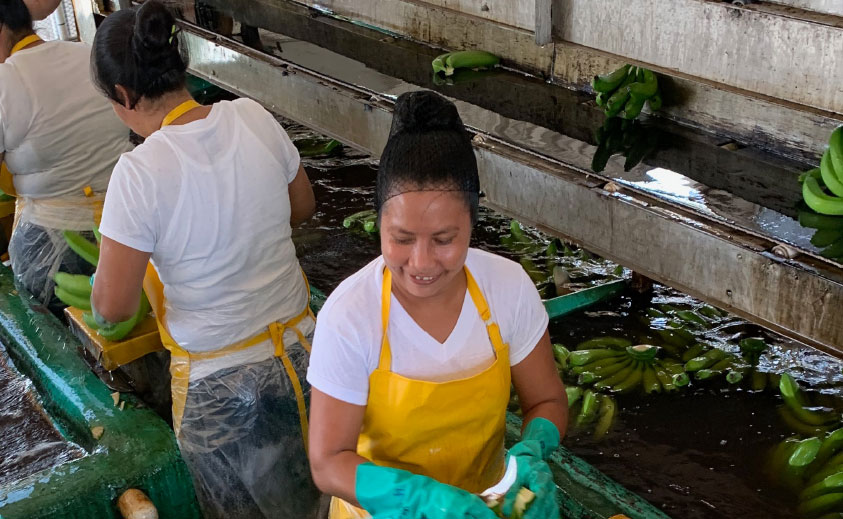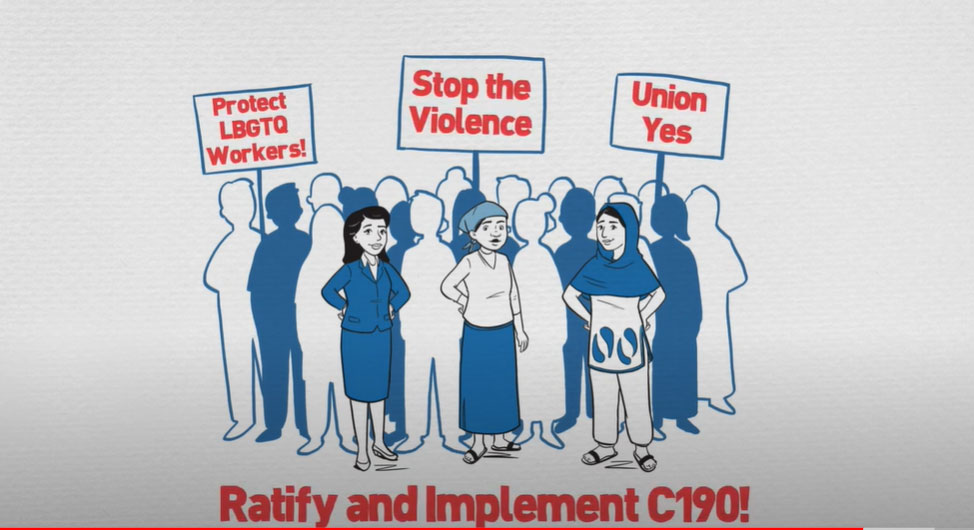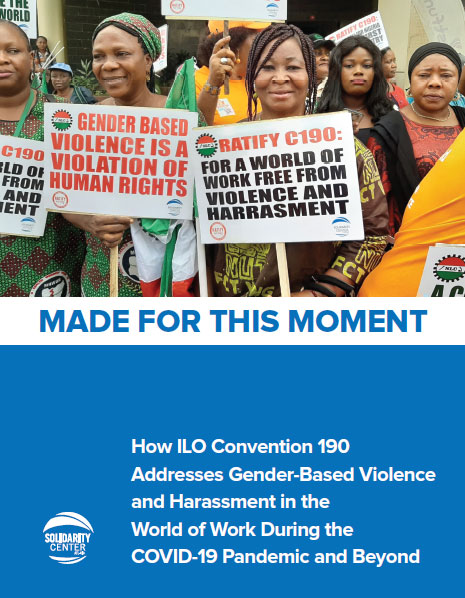Unionized workers on Guatemala banana plantations earn more, work fewer hours, face less sexual harassment, and have safer workplaces, including during the Covid-19 pandemic, according to a Solidarity Center report. (The report also is available in Spanish.) “What...
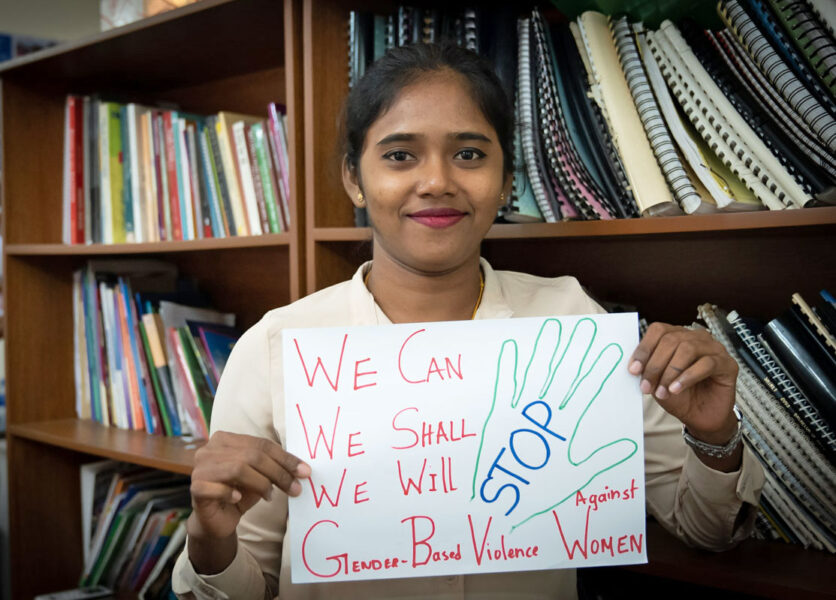
The Solidarity Center and worker rights organizations like the Lanka Eksath Jathika Workers Union in Sri Lanka advocated for a landmark global standard to eliminate gender-based violence and harassment at work and are pushing for its ratification by governments. Credit: Solidarity Center/Sean Stephen
The Solidarity Center prioritizes preventing and addressing gender-based violence and harassment in the world of work, recognizing it is a primary barrier to achieving gender equality and a key step for security of all workers’ rights. The Solidarity Center seeks to enhance the voice of women and other marginalized workers in policy making at the local, national, and international levels to reduce the risk of gender-based violence at work and build leadership, voice and direct participation of women and other marginalized workers and their unions.
Beginning in 2014, the Solidarity Center was a core member of a global coalition of worker rights organizations led by women union activists that successfully advocated for a landmark global standard (Convention 190) to eliminate violence and harassment in the world of work, including violence against women at work which was adopted by the International Labor Organization in June 2019. We support our partners as they campaign for their governments to ratify ILO Convention 190.
See related factsheets, videos and reports.
New Tool for the Campaign to End Gender-Based Violence at Work
As union activists around the world urge their governments to ratify International Labor Organization Convention 190, the first global standard to address gender-based violence and harassment (GBVH) in the world of work, they also are educating and mobilizing members,...
Made for this Moment: How ILO Convention 190 Addresses Gender-Based Violence and Harassment in the World of Work During the COVID-19 Pandemic and Beyond
This report highlights how C190, the first global treaty that recognizes the fundamental right to work free from gender-based violence and harassment (GBVH), addresses GBVH in the world of work and identifies concrete steps to address it. Read the full report here in...
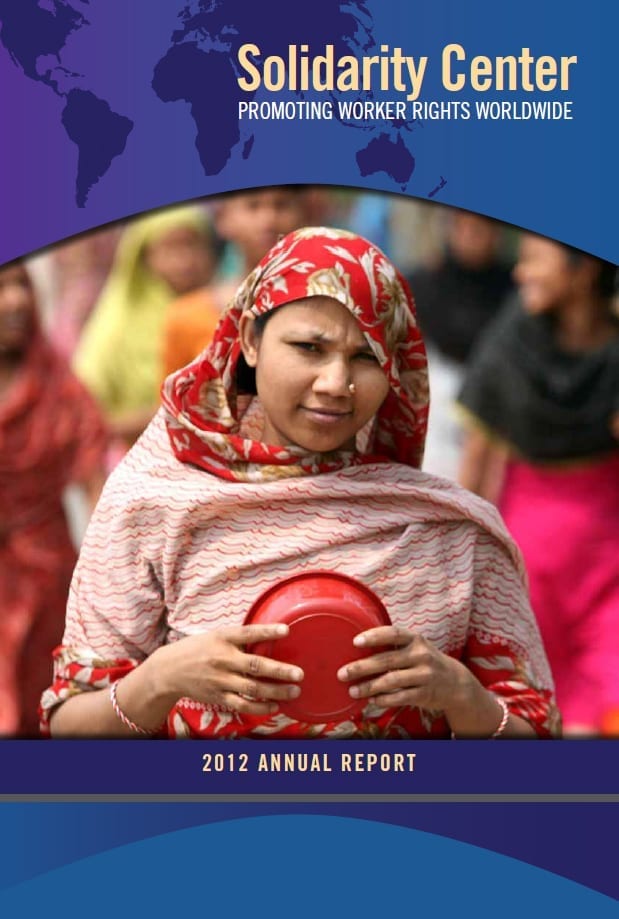
Solidarity Center 2012 Annual Report
Download here.
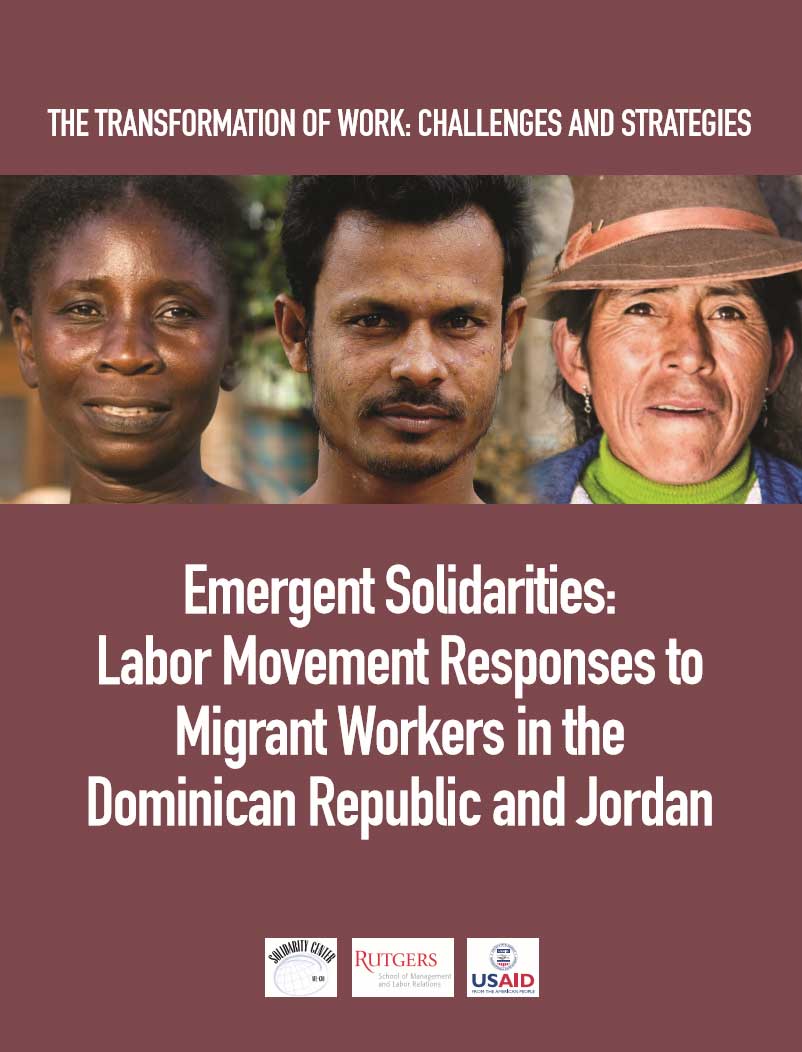
Emergent Solidarities: Labor Movement Responses to Migrant Workers in the Dominican Republic and Jordan (Rutgers, 2013)
This report explores examples of unions making significant change in their approaches to migrant worker organizing and how the Solidarity Center has played a role in shifting union thinking about migrant workers and supporting union engagement and activities. Part one...
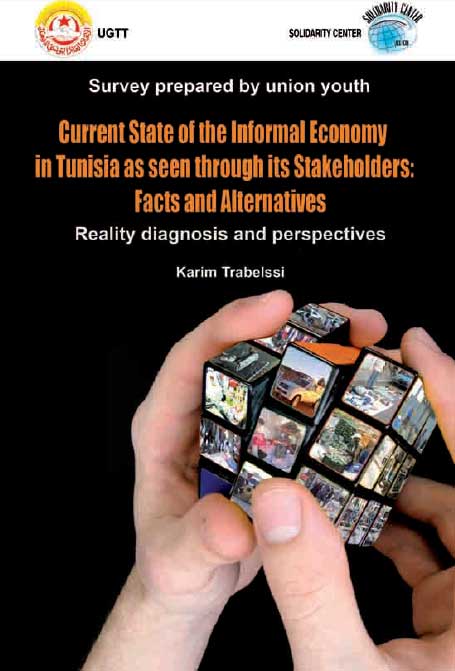
Current State of the Informal Economy in Tunisia as Seen through Its Stakeholders: Facts and Alternatives (June 2014)
A new Solidarity Center study takes a close look at the factors fueling the massive growth of Tunisia’s informal economy, and recommends actions to help shift workers in the precarious informal sector to jobs with health coverage and other social benefits. Download...
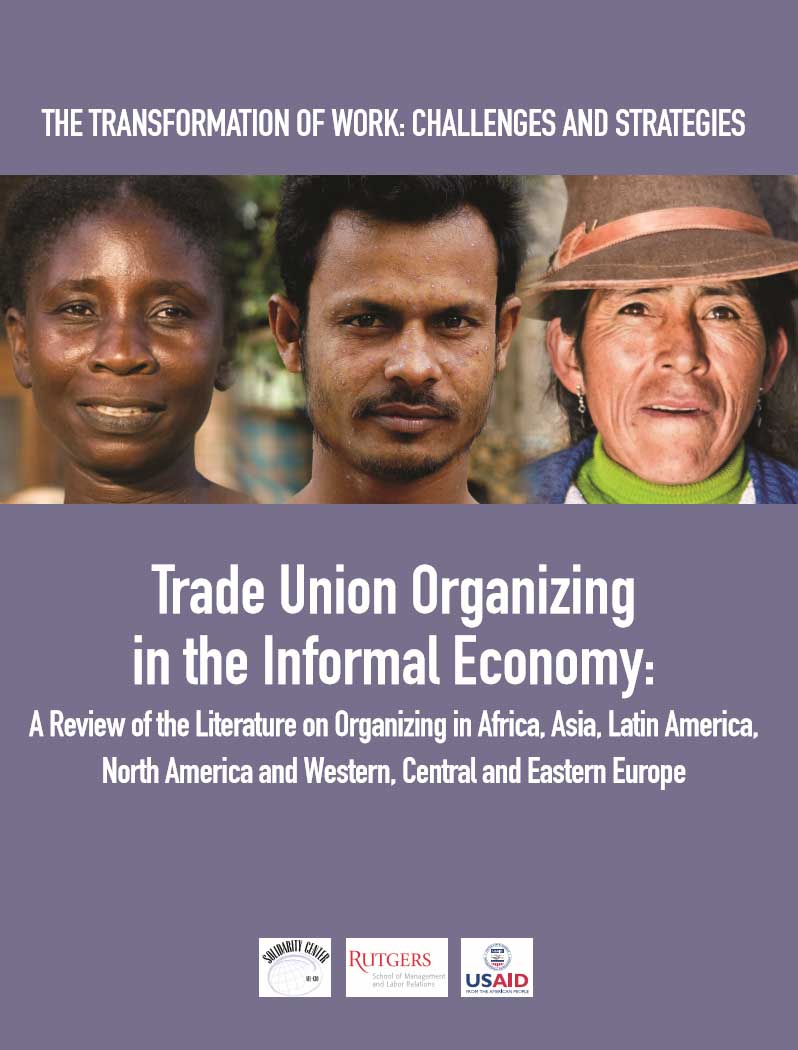
Trade Union Organizing in the Informal Economy: A Review of the Literature on Organizing in Africa, Asia, Latin America, North America and Western, Central and Eastern Europe (Rutgers, 2013)
This report reviews the literature of efforts throughout the globe by workers who labor outside the formal labor economy of their countries to form or join trade unions as well as unions’ efforts to organize and represent them. This Solidarity Center report is part of...
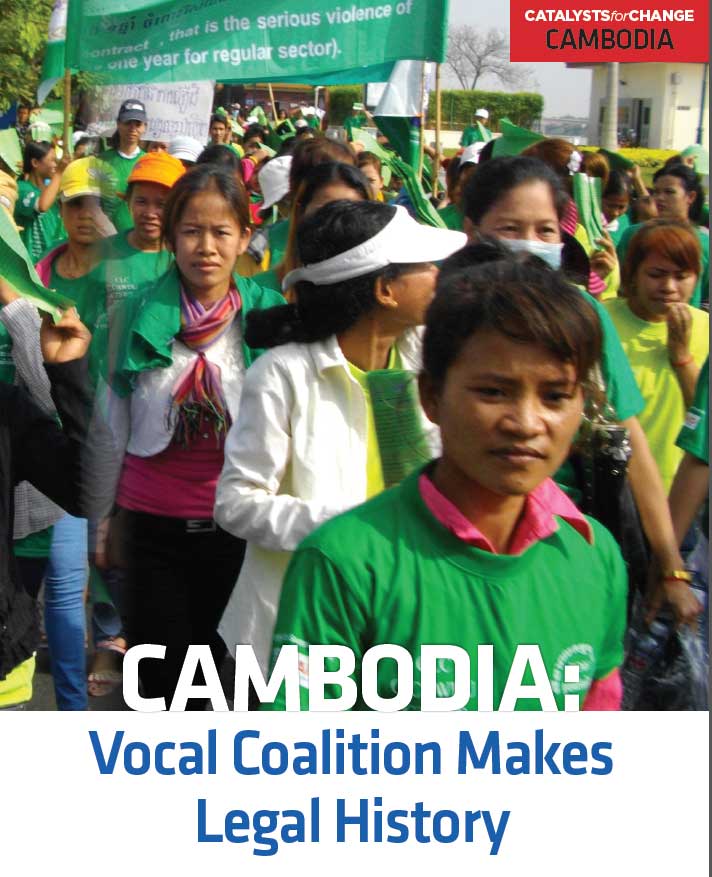
CAMBODIA: Vocal Coalition Makes Legal History (2013)
Cambodia’s nascent independent labor movement and human rights organizations worked to revise a labor law proposed in 2011 that would have significantly rolled back worker rights—and a Solidarity Center report describes how they did it. English (PDF) Arabic (PDF)...
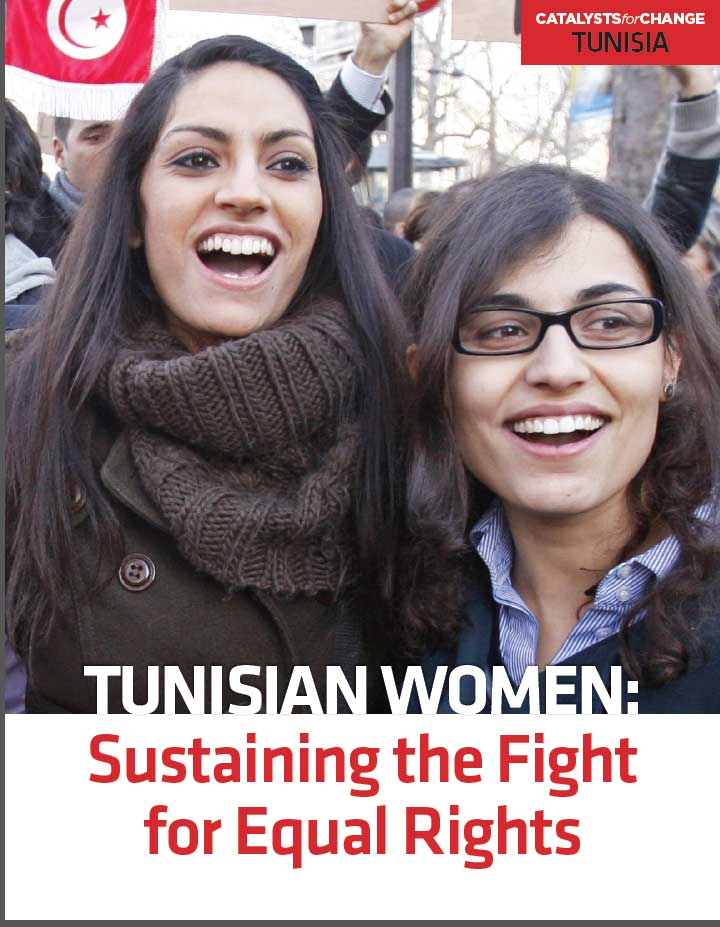
TUNISIAN WOMEN: Sustaining the Fight for Equal Rights (2013)
In 2011, Tunisian women helped spur protests and end autocratic regimes in Tunisia and throughout the Arabic-speaking world. Today, a Solidarity Center report finds Tunisian women remain in the forefront of ensuring democratic change in their country during the...

